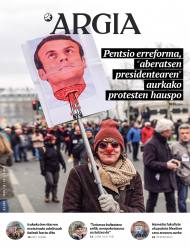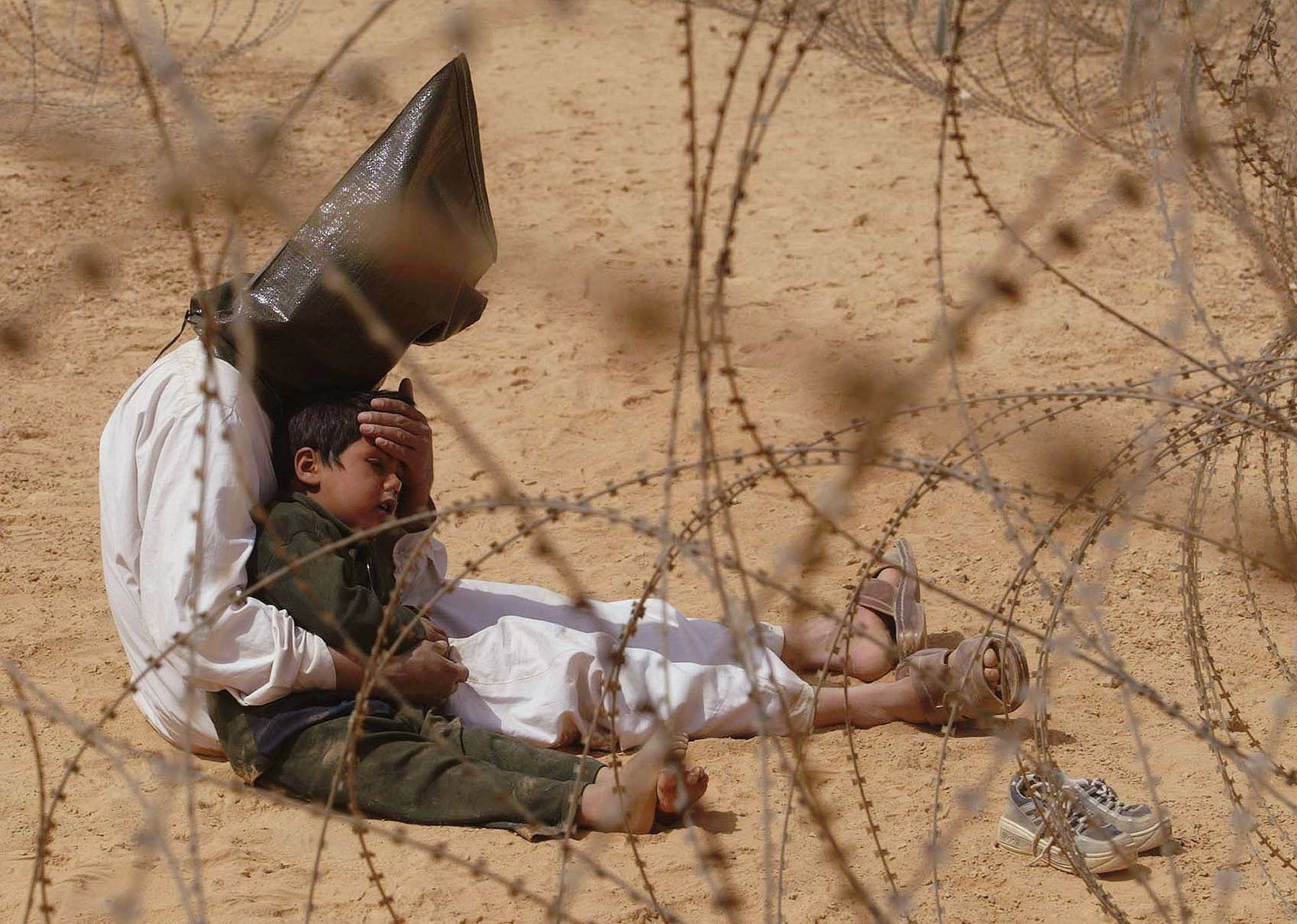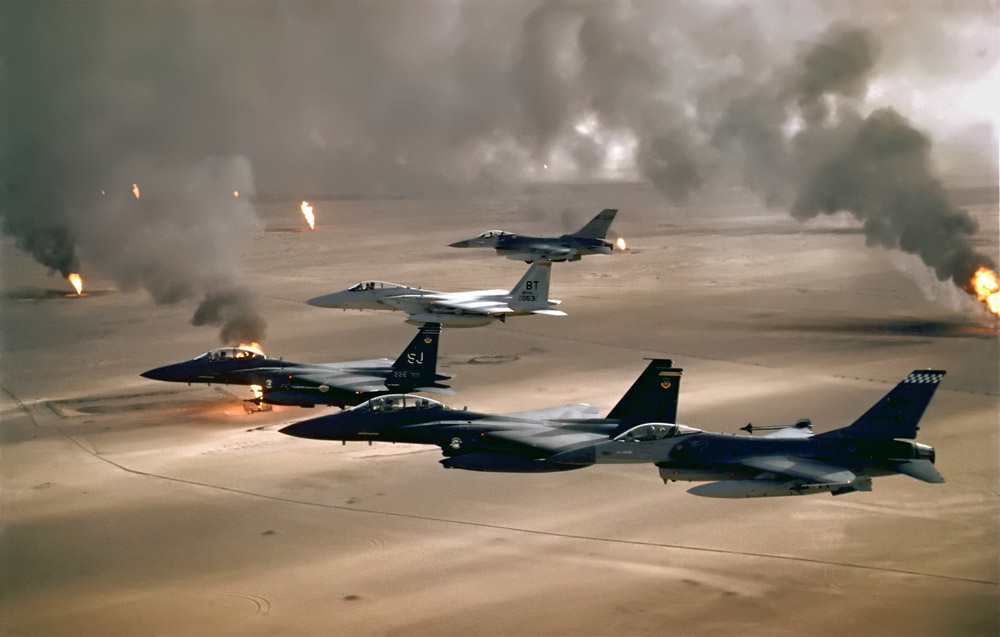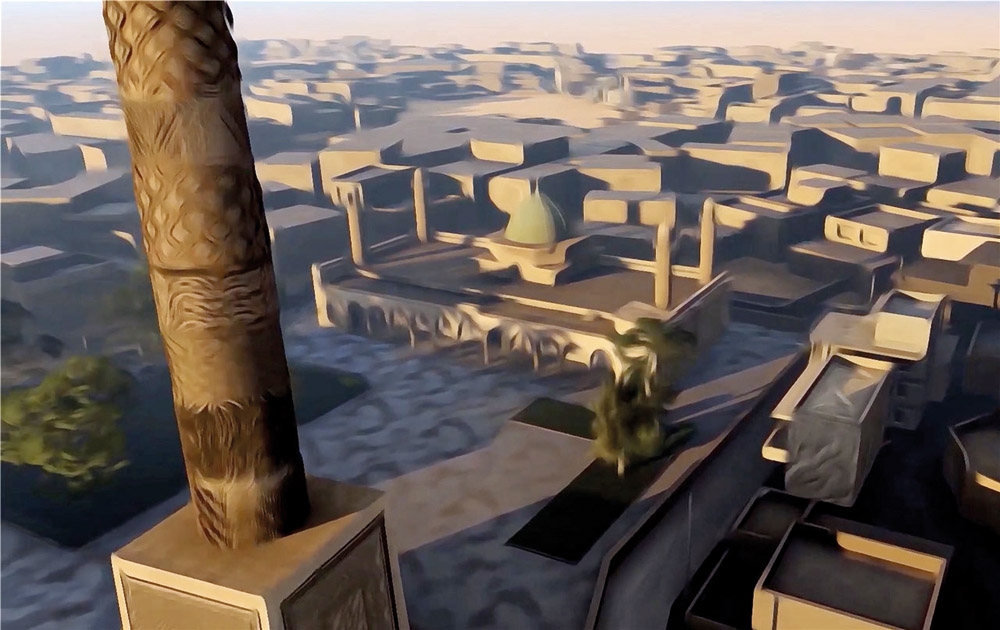The bloody Iraqi rebellion between global discontent and war between Iran and the United States
- The protest wind has spread around the world as a storm in 2019. These riots, which have ignited the streets of governments and very different socioeconomic models, have been compared by some experts with the exceptional series of riots of 1848 and 1968. How can we interpret its origin, its pulp and its possible future development? The Iraqi revolt, the bloodiest of this year, can be an example of the complexity of the components of these social earthquakes.

Iraqi Prime Minister Abdel Abdul Mahdi has announced that he will resign with the new year after failing in his efforts to deal with the country-wide protests against the corruption of the authorities, the lack of youth employment and Iranian intervention.
At least 400 people have lost their lives in the great revolt that began on 1 October in Iraq. The protests, involving over 200,000 people, have brought to the streets outrage both workers and the unemployed in very precarious living conditions and many of the middle classes.
During this time, Abdul Mahdi has tried to control the situation, a politician who hitherto enjoyed a great reputation as a man of moderation and calm. But the last week of November was the bloodiest of two months, with at least 50 deaths by police and government militias, and the Prime Minister could give the impression that he had lost control of the situation.
On Wednesday, 27, the Protestants raided and set the Iranian Consulate in Najaf on fire, a provocation which police and militias responded by killing half a hundred protesters in the following two days. Bewildered by events, the governor of Qar Province, Dhi, resigned and said: “It’s a dishonor to belong to this system that kills the people of their people.”
Among the subsequent reactions, however, it has been even more decisive to publicly suggest to Ali Al Sistani, the main Ayatollah, that the government should change. Unlike other Shia priests, among whom the populist Muqtada al-Sadr is the best known, Al Sistani only makes public his political choices in serious crises and everyone recognizes him a great influence in Iraq.
On 29 November, in the sermon on Friday, the high priest of the Iraqi Shiites expressly warned them of the danger of plunging into civil war and tyranny, specifically called on government forces not to kill more protests and rebels to exclude all violence. On that day Abdul Mahdi learned that his period had ended.
Among the media that follow the current situation of the Arab world, the Web Ort XXI will be one of the references of Europe, written in French and Arabic under the direction of veteran journalist Alain Gresh. Journalist Mustafa Saadoun of La XXI has published the chronicle “Those Youth Facing Death”, a collection of people who have seen and heard in the streets.
“A ‘Shia’ rebellion,” writes Saadun, against a ‘Shia’ authority? As from 1 October, Iraqi Protestants face inexorable repression, even though theirs is a peaceful movement. The sniper machine (snipers) hidden in the buildings of the area, the grenades thrown from very close, the use of arms brought from abroad... (...) It could be said that the government and the parties in power are terrified of these protests, in which the protagonists are groups of young people to whom no political or religious ties are known.”
The neighbourhoods in Baghdad where the protests have taken place are homes of ordinary people, especially Shi'ites, who have been militants of political groups and cadre quarries since 2003. The parties they sent did not expect the protests of the young elite of the city, made up of young elites, to spread to those places and to those people. However, poor young people have also been captured by the same harsh repression and, according to other observers, the repression by the authorities has not been even more brutal due to the peaceful conduct of the protests.
More than religious epic, daily bread
“Several activists – Saduna has written – have explained to me what the modus operandi of the hidden sniper was, which sometimes shot into the ass of the protesters, to mock them or humiliate them. If their neighbors tried to help the wounded fallen, they were prevented from pulling to force them to kill their teammate on the ground.” There has been a lot of talk about the snipers not being policemen, but they are Shia militias who support the government and who do the dirty work to Iran, which is increasingly involved in Iraq.
The scholar specializing in Shia Islams, Sabrina Mervin, in the same BidasoaXXI, has explained in the analysis “The national overlaps the religious” the environment he has found in the city and surroundings of Carbala, a saint for the Shiites. There the protests have been suspended by the October pilgrimage, to resume the march from then on.
According to Mervin, great religious epics care nothing about protesters, as little as plot theories: daily inactivity has brought them back. And when religion is taken over as on pilgrimage, the old hymns of the church update: “O Prophet, the people have risen up... There is no glory to the government, all thieves.”
What about Iran? Everywhere people say that the ‘Iranian brother’ controls all the mechanisms of the state, which is part of the widespread corruption, which squeezes the throat to Iraq on the pretext of helping...
The fact is that this autumn there has been an accumulation of revolts on the Iranian authorities throughout the week. The demonstrators have had to cope with the major demonstrations on Iran’s street, where little concrete information has been disseminated, but which point to a high death toll. Lebanon has plunged into the eleventh crisis, in which mass protest movements are also taking place and in the case of Iran’s role. Some analysts insist that the hand of the United States and Saudi Arabia wants to shake up the entire region affected by Iran (Iran, Iraq, Syria, Lebanon…), bringing the riots together with the attempt to destabilise.
Precisely at the other end, others include in the broad sack of the major protests of 2019: “For the first time there have been protests in all regions and political systems around the world, both in the rich democracies and in the authoritarians,” said British scholar and advisor Richard Young. For former World Bank member Branko Milanovic, all revolts are linked by hatred of power and contempt for politicians: “This is the first revolution in the era of globalization, not the opposite of globalization.”
Instead, we are for the Alain Gresh of La XXI in 2010 in the second wave of revolutions that shook the Arab world. The first, which was opened from Tunisia in 2010, managed to defeat the dictatorships, but they were drowned with money from Saudi Arabia and counter-revolutionary military interventions. The second wave of 2019 has the same regulation as it was then: drowning authoritarian authorities, appalling social situations, unemployment, lack of young people’s future and huge inequalities. “The Middle East is the least egalitarian region in the world!”
This photo turns 20 and that EE.UU. He invaded Iraq with his European mariachis. The arguments were the deterioration of the “weapons of mass destruction” and the “liberation” of the country. One country was destroyed: over half a million Iraqis, mostly civilians, caused... [+]
Gudarako droneen teknologian milioika dolarreko inbertsioak egin ostean, “historiako aire kanpaina zehatzena” iragarri zuen Barack Obama, AEBetako presidenteak. 2014tik gaur arte Pentagonoak bildutako dokumentuak aztertuta, ordea, “aire guda hau inteligentzia... [+]
























